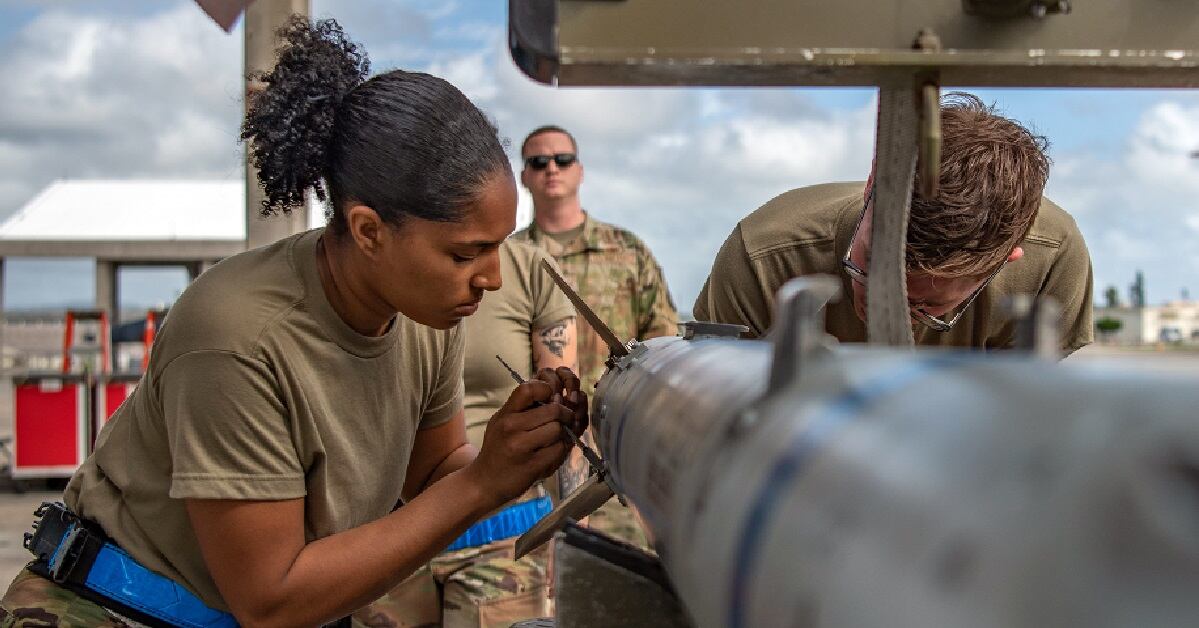Top Air Force officials want supervisors across the service to know: It’s one thing to hold the title of “leader,” and another to act like one.
On Monday, Chief of Staff Gen. Charles “CQ” Brown and Chief Master Sergeant of the Air Force JoAnne Bass asked airmen — especially those in leadership positions — to routinely create opportunities for personal and professional growth and to forge closer bonds. They call it “airmen’s time.”
“‘Airmen’s time’ is a way of life — not a program,” Bass and Brown wrote in a letter to the force this week. “Care cannot be outsourced. Getting to know and see our airmen beyond the uniform is how we build connection.”
That could mean monthly mentorship chats with someone from outside the unit or periodic group discussions of common issues that squadron members may face at home — whatever helps build community.
“Share perspectives and life lessons,” the letter said. “Discuss what values guide us, or what is our team’s purpose.”
Some squadrons may already be organizing those kinds of discussions on their own. Others may see it as a good idea they haven’t put into action, or as another duty cutting into their free time.
The suggestion is meant to recognize “what the Air Force is and what our place in it is,” Bass’s spokesperson Master Sgt. Jarad Denton said Tuesday. It’s also supposed to remind higher-ranking airmen of what’s expected of people in their positions.
RELATED

“Airmen’s time” is part of an effort to get back to the basics of being a good airman, Denton said.
Interpersonal connection and teambuilding will be baked into a set of forthcoming documents meant to shape the future of the Air Force enlisted corps, like an updated “Little Brown Book” of enlisted information and a career development blueprint.
They’ll lay out how a leader should care for their wingmen as a staff sergeant, for instance, compared to as a senior master sergeant.
Officials want airmen to own and enjoy what they come up with, not see it as another requirement to check off the to-do list or something to ignore. For instance, some units missed an opportunity for dialogue in 2019 when they blew off an order from Air Force headquarters for troops to take a day to discuss issues surrounding the military’s ongoing struggle with suicide.
RELATED

Still, many online eyed the letter with a dose of skepticism.
“Impressive that so many words were used but so little was said,” one Reddit user said.
“I had my wife read it to make sure I didn’t miss anything. She got done and asked me, ‘So what IS airman’s time?’” another Redditor posted.
Tech. Sgt. Daniel Hulter, who works at Colorado-based Air Force CyberWorx, disagrees: “They did this one right,” he wrote on Facebook.
“We don’t need to be told from on high how to have conversations, establish trust and act as adaptive, responsive leaders for our airmen,” he said in a public group post. “What they did with the memo was establish intent and set a couple of left and right limits.”
Airmen can probably figure out how to put the memo into action without needing micromanagement from senior leaders, he said.
RELATED

Still, many supervisors likely do need to brush up on their communication skills and the ability to read their airmen better, “especially with people who are not like them,” Hulter added.
“We probably need to think about how we’re going to solve that competency problem,” he said.
But make no mistake: the intent is “NOT for ‘airmen’s time’ to happen during down time or weekends” when airmen are recharging, Bass warned.
“Don’t be that leader,” she said.
Rachel Cohen is the editor of Air Force Times. She joined the publication as its senior reporter in March 2021. Her work has appeared in the Washington Post, the Frederick News-Post (Md.), Air and Space Forces Magazine, Inside Defense, Inside Health Policy and elsewhere.





